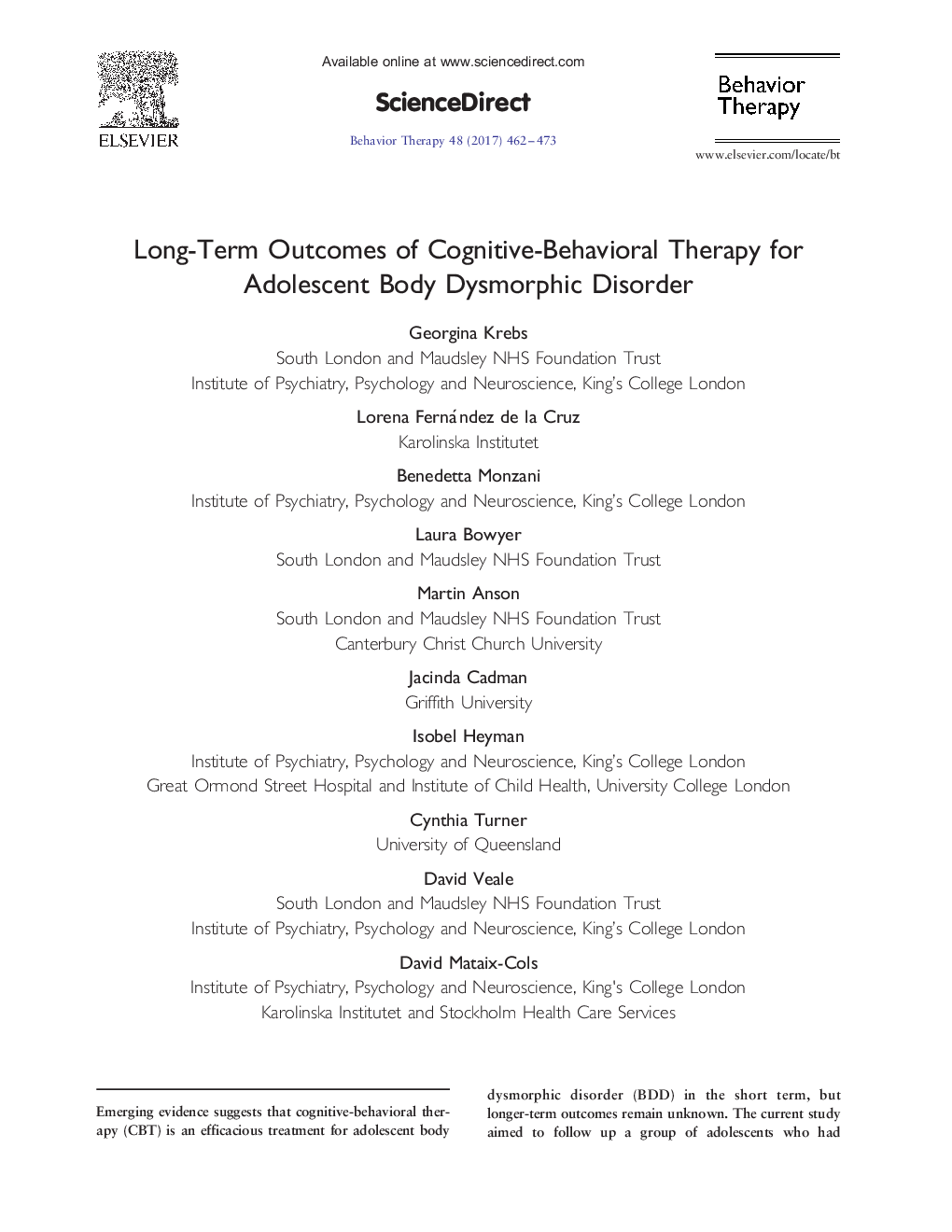| Article ID | Journal | Published Year | Pages | File Type |
|---|---|---|---|---|
| 5038063 | Behavior Therapy | 2017 | 12 Pages |
â¢CBT for adolescent BDD was associated with significant symptom reductionâ¢Treatment gains were maintained at 12-month follow-upâ¢The majority of adolescents remained symptomatic at 12-month follow-upâ¢Longer-term monitoring is recommended in adolescent population
Emerging evidence suggests that cognitive-behavioral therapy (CBT) is an efficacious treatment for adolescent body dysmorphic disorder (BDD) in the short term, but longer-term outcomes remain unknown. The current study aimed to follow up a group of adolescents who had originally participated in a randomized controlled trial of CBT for BDD to determine whether treatment gains were maintained. Twenty-six adolescents (mean age = 16.2, SD = 1.6) with a primary diagnosis of BDD received a course of developmentally tailored CBT and were followed up over 12 months. Participants were assessed at baseline, midtreatment, posttreatment, 2-, 6-, and 12-month follow-up. The primary outcome measure was the clinician-rated Yale-Brown Obsessive-Compulsive Scale Modified for BDD. Secondary outcomes included measures of insight, depression, quality of life, and global functioning. BDD symptoms decreased significantly from pre- to posttreatment and remained stable over the 12-month follow-up. At this time point, 50% of participants were classified as responders and 23% as remitters. Participants remained significantly improved on all secondary outcomes at 12-month follow-up. Neither baseline insight nor baseline depression predicted long-term outcomes. The positive effects of CBT appear to be durable up to 12-month follow-up. However, the majority of patients remained symptomatic and vulnerable to a range of risks at 12-month follow-up, indicating that longer-term monitoring is advisable in this population. Future research should focus on enhancing the efficacy of CBT in order to improve long-term outcomes.
